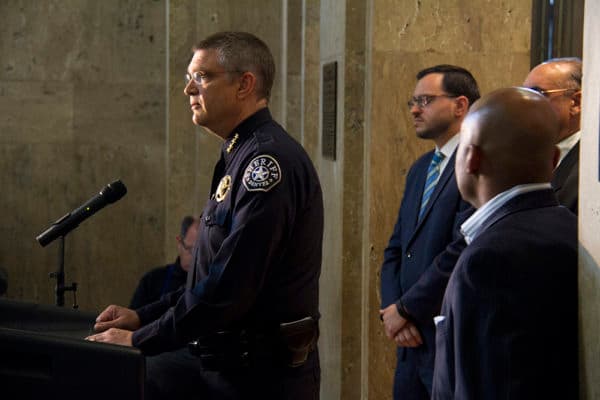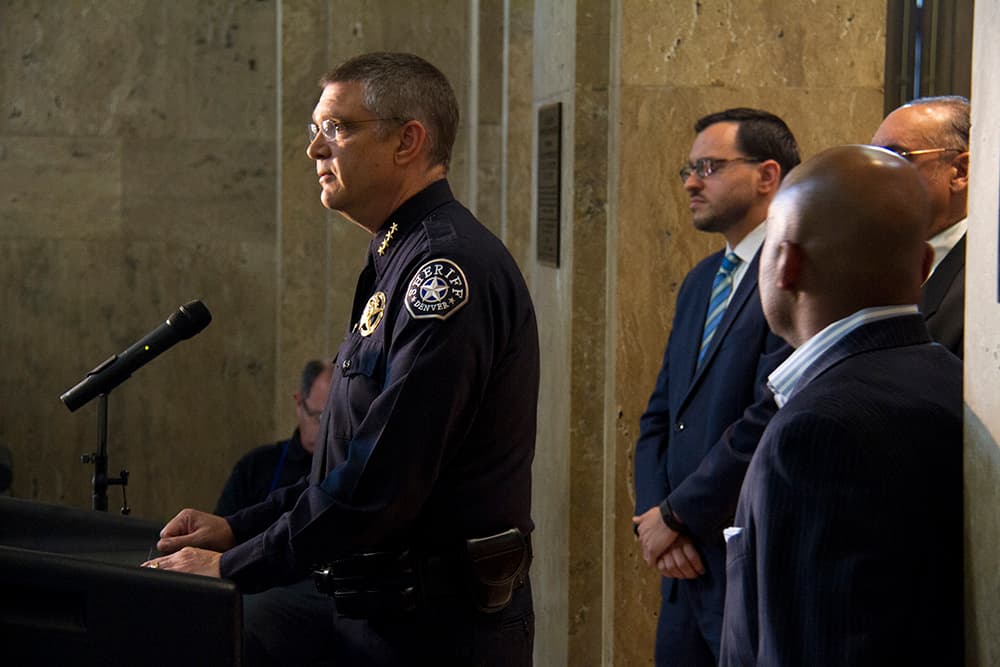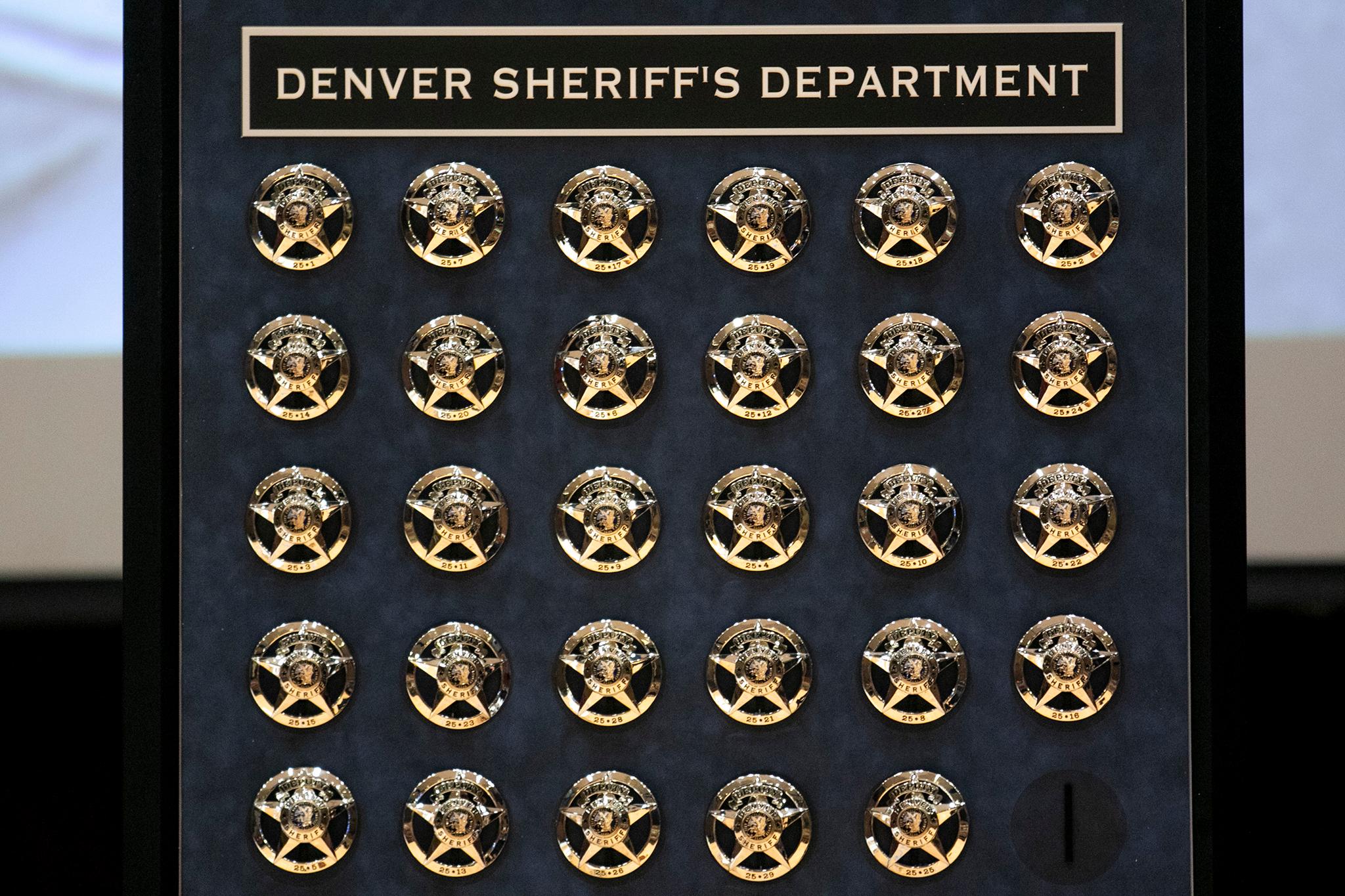
The Denver Sheriff's Department has new use of force rules:
- Deputies should look for ways to calm down a situation before using force and should use the least amount of force necessary.
- If a threat isn't imminent — say, an inmate is in his cell and refusing to come out — deputies should consult with a supervisor and come up with a plan.
- Force may not be used in response to swearing or insults and cannot be used to punish, degrade or humiliate.
- When deputies use body weight to control someone who is resisting, they should get their body weight off the inmates back, head, neck or abdomen once that person is restrained.
These new rules will "hopefully" result in fewer deaths in Denver's jail, fewer lawsuits, fewer large pay-outs to the families of inmates, said Al LaCabe, the city's former safety manager, at a press conference Thursday announcing the new rules.
"This is based on principles which go beyond criminal and constitutional law and deal with the issue not of what you might be able to do under the law but how you should react if time and circumstances permit. It's putting it on the deputies, when you have a situation where you are able to do this ... to think of ways to deal with it, to use proper de-escalation techniques or tactics to attempt to either avoid force or lessen the amount of force that is necessary," he said.
Mayor Michael Hancock said the policy creates "the foundation of underlying values for any and all interactions" between sheriff's deputies and inmates. Phrases like "what you should do, reasonable and necessary and least amount of response necessary to abate the threat" are used in the new policy.
"If the sheriff's (deputies) know that these are the guiding principles that we're all going to be judged by, we've given them the tool chest to think, step back if you can, 'What is the response that is going to be expected of me?'" Hancock said. "This is not about putting sheriff's deputies in a position where they cannot defend themselves. They will continue to do that and we expect them to. But this policy gives the underlying values."
Director of Safety Stephanie O'Malley said the new policy is the result of extensive work by a group that included community members and looked at best practices around the country.
Sheriff's deputies are receiving week-long crisis intervention training and a 10-hour training on the new use of force policy that will include practice with realistic scenarios. That training should be complete by the end of the year. The Sheriff's Department also is revising its disciplinary guidelines to reflect the new policy and create stronger penalties for inappropriate use of force.
What does this look like in practical terms? How would infamous cases like the death of Marvin Booker in 2010 or the death last year of Michael Marshall, who suffocated while being restrained during a psychotic episode, be handled differently?
"It would be unfair for us to take a policy and go back and apply it to previous situations," Sheriff Patrick Firman said. "We are looking forward to the future and we are confident that these changes will help our staff understand what we expect of them."

The part about not being able to use force to respond to insults or as punishment? It wasn't that that was allowed before, but it needed to be clarified and emphasized in training, Firman said.
Implementing these changes will be an ongoing process that requires a cultural change, he said.
Firman said deputies have a difficult job and will still be able to use force when it's necessary for safety.
"Everybody who comes through our door is dealing with crisis in some way," he said. They've just been arrested. They may be drunk or on drugs or experiencing a mental health crisis. Sometimes their actions place themselves, other inmates or deputies in physical danger.
"There may be times with the volatility of this population that there is no time to think," Firman said. "We will continue to train our deputies in self defense tactics and how to safely restrain individuals. That is not going away. We are adding additional training in de-escalation."












